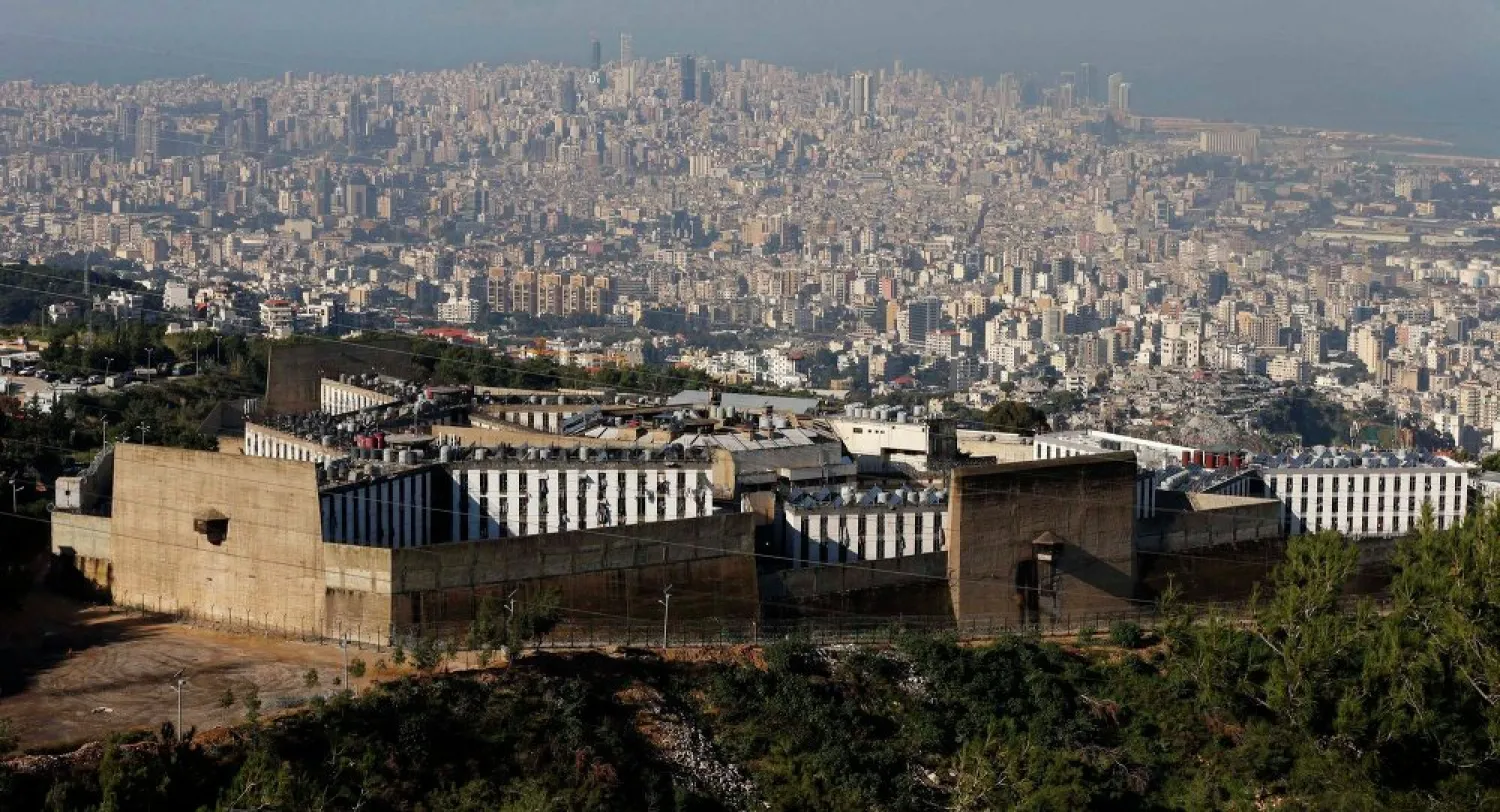Overcrowding at Lebanese prisons has left hundreds of arrest warrants pending, an alarming reality in a country that is witnessing a growing number of crimes.
The central Roumieh prison houses 3,395 inmates, 1,026 of whom have been convicted, while the rest are still awaiting their trial, an official source at the Internal Security Forces (ISF) General Directorate told Asharq Al-Awsat.
Roumieh harbors Lebanon’s most dangerous criminals, who pose a threat to national security and civil peace, meaning Islamist extremists. Their detention requires tighter measures than other prisoners.
Overcrowding, however, is only one of many problems plaguing Roumieh, just east of Beirut. It also does not meet international human rights standards, said constitutional law and public freedoms expert lawyer Rabih al-Shaar.
“These problems stem from an insufficient number of security officers and judges and a lax judiciary,” he explained.
Moreover, he said that the criminal trial laws are also outdated.
Asharq Al-Awsat made a limited tour of Roumieh where it witnessed the wardens’ attempts to make up for the prison’s shortcomings. The problems at the facility are too overwhelming to be concealed.
Roumieh houses 1,814 Lebanese inmates, 970 Syrians, 317 Palestinians. 26 Egyptians and 14 Iraqis. The rest come from different countries, including two Iranians, a Russian and Swede.
An official at the prison told Asharq Al-Awsat that the security at the facility has been tasked to the security forces there given the “weakness of the Justice Ministry, which should be the actual authority in charge of it.”
The prison is therefore being managed by experienced security forces personnel. They have also undergone training with civil society groups concerned with human rights issues.
The official rejected accusations that the wardens were cruel in their treatment of prisoners, saying: “The ISF is in charge with training the community police force. Those who join the training develop a deep sense to commit themselves to public service.”
Shaar, meanwhile, said that crime was on the rise in Lebanon due to “the weakness of state agencies, a lack of political stability and a deterioration of the economy.” He noted in this regard the growing number of arrests linked to financial fraud.
The increase in crime can also be attributed to a growing number of residents, notably Syrian refugees and foreign labor.
All of these factors have left some 2,000 arrest warrants pending until room is available in prisons, he remarked.
Despite a growing number of security forces recruits, not enough of them were tasked to prison security, he said.
Commenting on the large number of inmates who are detained without trial, he blamed this issue on the “lax approach adopted by lawyers who adopt stalling tactics in order to charge more money from their clients. Other lawyers lack enough experience in the field, leading to longer detention times.”
The judicial system is also to blame for the poor state of affairs in prisons, Shaar said.
He explained that over 1,000 judges are needed in Lebanon, while only 550 are present. In addition, some 150 of them work as lawyers and are not actual trial judges. This leads to judges handling more cases and in some instances one could be overseeing more than 70 cases in a day.
Furthermore, he cited impunity and slow judicial procedures as additional factors that weaken justice in Lebanon, leaving the inmate or detainee to suffer the consequences of these shortcomings.
He noted that the deputy general prosecutor is charged with making regular visits to prisons to inspect them, but he has not been doing so. Even when the visits are done, they are not followed up by the justice minister.
Improving the situation in prisons requires a political will and a specific plan, he stated. The first step lies in returning this file under the control of the Justice Ministry. Currently, prisons are a burden on the ISF.
The Ministry must manage prisons and rehabilitate inmates, while the ISF’s role should be limited to security, Shaar explained.












